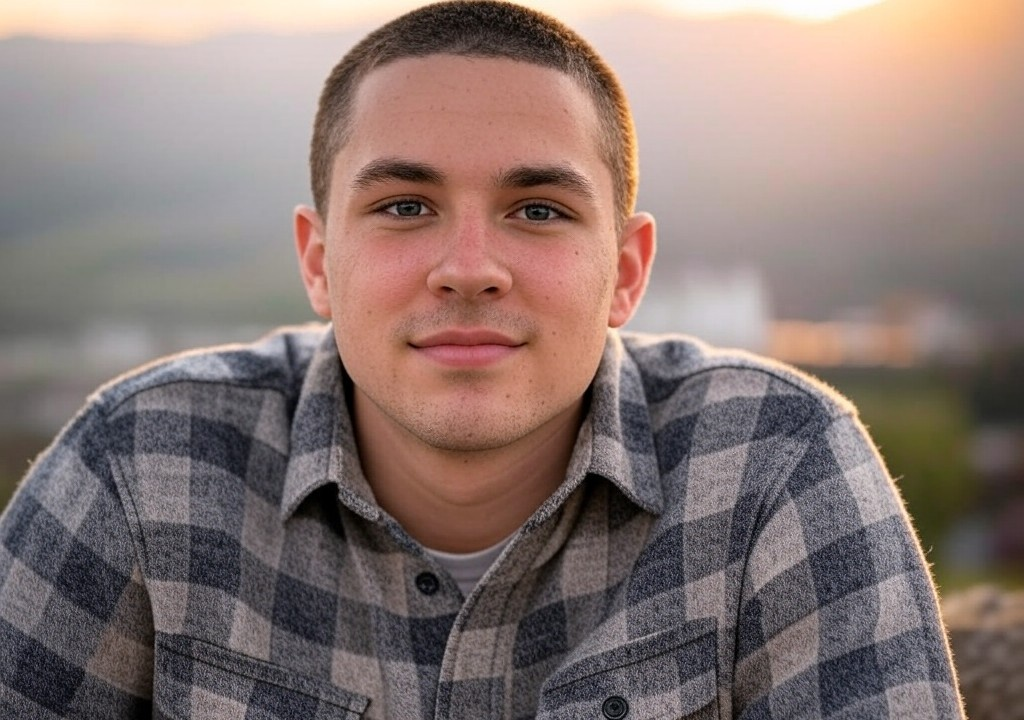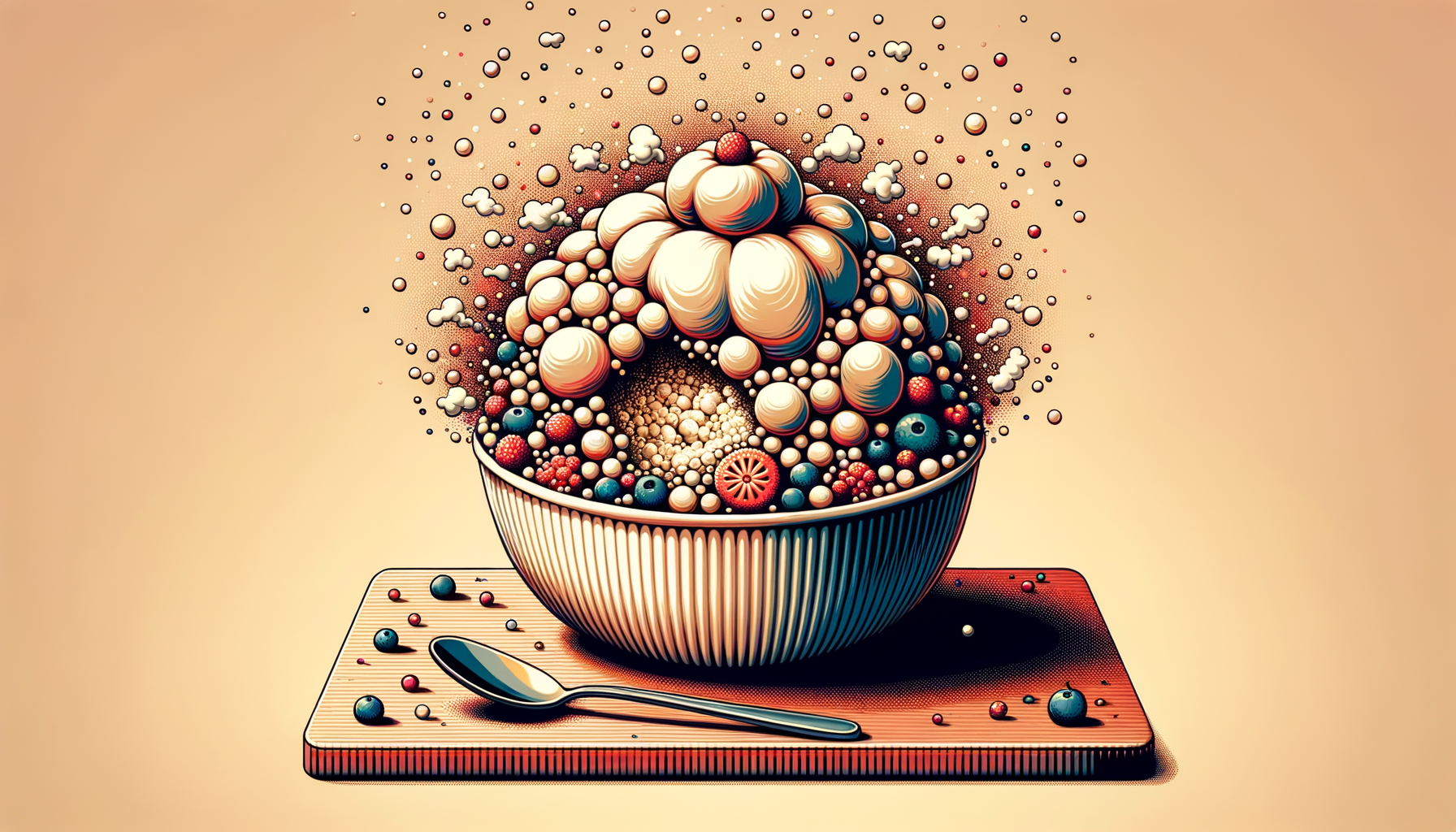The Taste of Failure
Everyone says the first big failure tastes bitter, but mine was more gluten-free brownie than bitter pill: a little strange, unexpectedly crumbly, and entirely my fault. Let me set the stage for you. I was seventeen, standing in our suburban Salt Lake kitchen and pitching my mom—who made spreadsheets for dinner prep—a “brilliant” plan to make my date fall in love with me through the power of a chocolate soufflé. What I lacked in culinary skill, I made up for in… unchecked hubris.
You’d think I would’ve known better growing up with the highly organized kind of mom who laminated chore charts, but the confidence of an LDS teenager flirting with rebellion is a uniquely powerful thing. I believed God would guide my whisk. Spoiler alert: He did not.
The date ended with us laughing awkwardly over gelatinously uncooked batter, me quietly experiencing my first existential crisis, and her politely feigning food poisoning so she could leave early. That night—as the deflated remnants of the soufflé and my ego stared back at me from the kitchen sink—I learned a universal truth: sometimes the things you envision working out perfectly can flop harder than a Hallmark Christmas movie in July.
But failures like this? They also have a way of shaping us more than our wins ever do. Turns out, deflated pride can rise again—just like a soufflé, if you’re willing to get the hang of it.
The Build-Up: High Hopes and Recipe Disasters
I’m not sure what I believed would happen when I decided to woo my date through soufflé-making. In hindsight, it was a classic Caleb move: aim big, anticipate applause, and entirely underestimate the science involved in, say, “soft peaks.”
My plan hinged on importing scenes straight out of a rom-com. Think Julia Roberts in My Best Friend’s Wedding, minus everything but the quirky charm. I imagined melting chocolate would look sexy instead of stressful. I thought whisking eggs would be cinematic, not physically exhausting. And for reasons I still can’t explain, I skipped over the fact that we didn’t own ramekins, substituting coffee mugs and praying the Holy Spirit would cover the difference.
To be fair, there were warning signs. My mom raised an eyebrow so high it could’ve reached the Wasatch Range. My younger brother quietly said, “Bold move, Caleb,” a phrase he reserves for times when failure is 99% guaranteed. But of course, I waved them off. I was fueled by romance, teenage adrenaline, and, frankly, enough repressed feelings to justify a hero’s journey.
Cut to 45 minutes later: my countertops looked like a Great British Bake Off stress test, except the technical challenge was “maximum chaos.” My “airiness” had turned into a limp puddle, and my poor date—who had unsuspectingly agreed to be romanticized into culinary history—looked on with the practiced politeness of someone preparing a mental escape route.
What My Disastrous Date Taught Me About Failure
In that kitchen, as my grand plan crumbled, so did my illusion of infallibility. Up until that point, I’d been living a version of life where hard work and good intentions practically guaranteed success. Growing up in the LDS community reinforced that narrative—a well-meaning culture of achievement paired with a hefty dose of perfectionism.
But here’s the funny thing about life (and soufflés): anything can collapse under the wrong conditions. The secret isn’t preventing the collapse—it’s learning how to regroup when you’re left holding the mess. Here’s what my first big failure taught me:
1. Perfection Is Overrated, Authenticity Isn’t
In my attempt to impress, I lost sight of what mattered most: connection. It didn’t matter if we had fluffy soufflés. What mattered was whether the evening felt warm, genuine, and fun—which, in this case, she likely would’ve preferred eating pizza rolls over navigating my edible crime scene.
Take it from me: people aren’t looking for perfection in relationships. They’re looking for someone willing to laugh with them about disasters, from burnt soufflés to awkward silences. Vulnerability is infinitely sexier than mastery.
2. Failure Has a Sense of Humor (Lean Into It)
If I could go back to that night, I’d accept the soufflé implosion with grace instead of spiraling into “what does it all mean?” territory. Failure is inherently absurd, friends. Acknowledge it. Laugh at it. Make t-shirts saying “2023 Soufflé Survivor” if you must. It’s infinitely more empowering to wear your failure lightly than treat it like a secret shame.
This is as true in relationships as it is in baking. You’ll flub dates, bomb uncomfortable conversations, and maybe spill soda directly into your crush’s lap (don’t ask). But owning those moments with humor can flip failure into charm.
3. Learn, Adapt, and Try Again
Here’s the kicker: I didn’t abandon baking forever after one traumatic attempt. A few years later, I returned to the kitchen looped into a friend’s post-graduation dinner party challenge. This time, I came armed with research and humility (and ramekins). To my shock, not only did the soufflés rise—they were a hit.
Resilience in romance works the same way. Take what you’ve learned from failed relationships or dates, tweak your recipe, and don’t be afraid to risk flopping again. Practice may not make perfect (let’s pretend love doesn’t exist under capitalism’s “perfection myth”), but it absolutely makes you ready to rise when it matters most.
The Soufflé Redemption Arc—and Why It Matters
Years after my first failed attempt, I found myself in an entirely different date-night situation—hiking with someone who eventually became my partner. There were no elaborate soufflés this time. No “cinematic moments” sourced from questionable rom-com logic. Just two people walking, laughing, and occasionally tripping over aggressively uneven terrain. The simple authenticity of that day made much more of an impact than any Instagram-worthy gesture ever could.
And isn’t that what relationships are ultimately made of? Not picture-perfect soufflés, but being willing to show up, take risks, and occasionally look ridiculous. Because the only thing more rewarding than nailing it on the first try is being able to laugh at all the times you didn’t.
So to anyone recovering from your own version of a botched soufflé—be it a failed date, a miscommunication, or yet another TikTok dance attempt gone wrong—take heart. The recipe for resilience starts the same way: own your mistakes, laugh about them later, and know there’s always another shot at redemption waiting (ramekins optional).




















